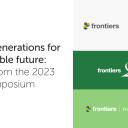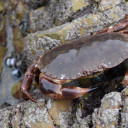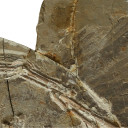
Top news
30 Nov 2023
Frontiers is gearing up for COP28 to address the climate emergency
The United Nations Framework Convention on Climate Change (UNFCCC) parties meet every year at the Conference of the Parties (COP) to negotiate and agree action on how to tackle climate change, limit emissions, and halt global warming. These gatherings are the world’s highest decision-making body on climate issues and one of the largest international meetings in the world. COP28 will provide a milestone opportunity for the world to come together, course correct, and drive progress to keep 1.5C within reach – so we can meet the goals and ambitions of the Paris Agreement. It will be a pivotal moment for the world to unite around tangible climate action and deliver realistic solutions. Photo credit: Kyle Anthony Photography Addressing climate change, the paramount challenge of our era, hinges upon harmonizing fundamental human needs with sustainable climate remedies. Despite heightened awareness and global pledges, advancements in climate action have lagged and, at moments, fallen short. Confronting this hurdle, open science emerges as a pivotal force for innovation and a driver of groundbreaking solutions, playing a vital role in addressing climate change challenges. As world leaders convene at COP28 in an effort to reach consensus on actions to prevent the planet from surpassing the 1.5-degree […]













